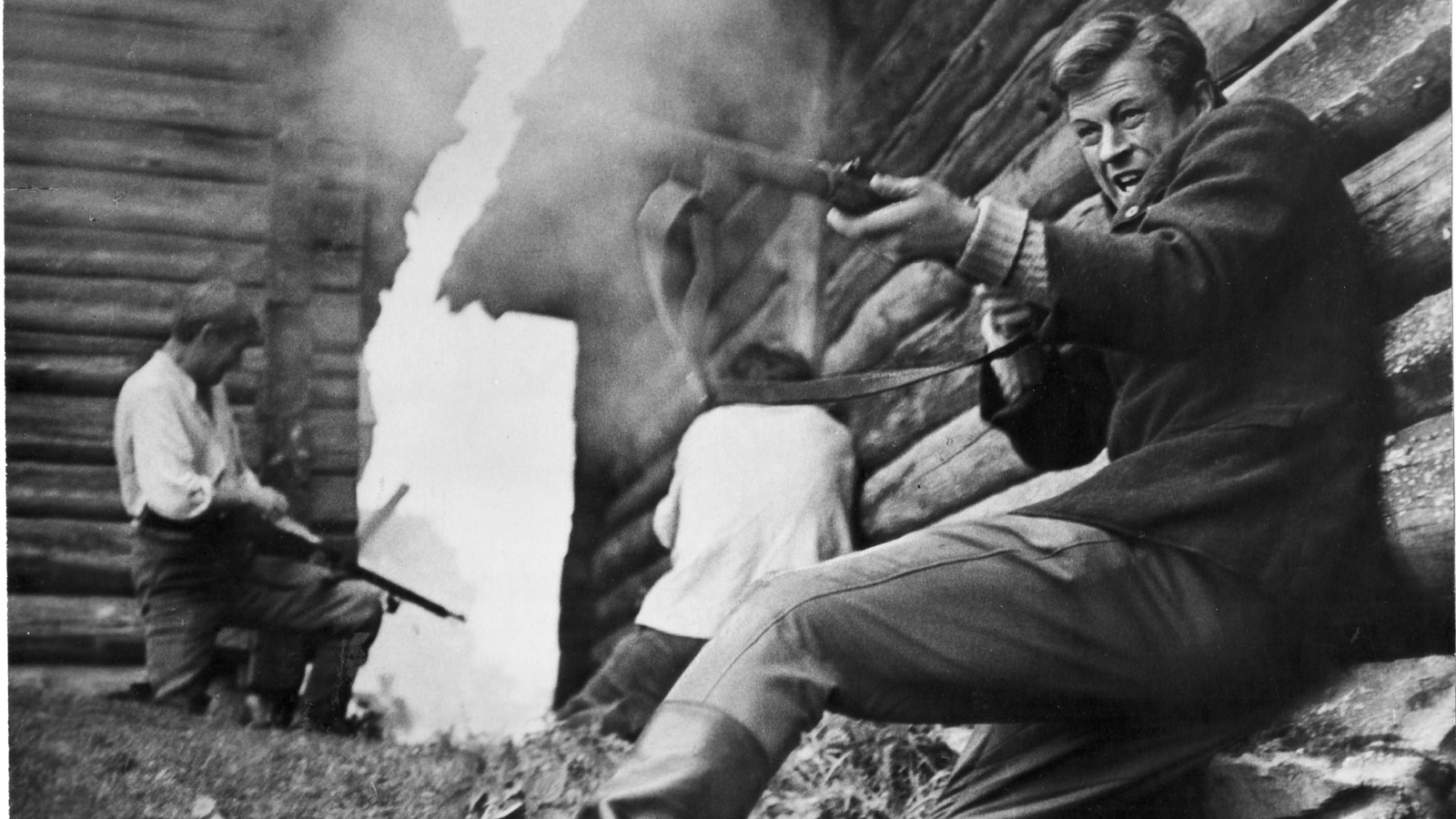Niekas nenorejo mirti
No one wanted to die
Von den LeserInnen des sowjetischen Filmmagazins Screen zum besten Film 1966 gewählt, ist No One Wanted to Die dennoch ein sowjetkrischer Film. Er handelt von den „Waldbrüdern“, den baltischen Partisanen, die während und nach dem Zweiten Weltkrieg aktiv waren. Die Wahl, diese Geschichte als Western zu erzählen, gab dem Regisseur die Möglichkeit, die Kritik gut zu verpacken:Keiner wollte sterben und niemand wollte töten - eine klare, jedoch sehr gewagte Aussage zu jener Zeit.
At the end of 1965, the young Lithuanian director Vitautas Zalakiavichus came to Moscow with his new film No One Wanted to Die. Everybody knew that Zalakiavichus’ film would be about the ‚Forest Brothers‘, the anti-communist partisans who operated in Lithuania (and other Baltic states) during and after World War II. But no one expected an anti-Soviet film. At first sight No One Wanted to Die is a typical Soviet film. Communists and peasants are good; Forest Brothers are bad. The plot is about the revenge of the sons of a village chairman, who is killed by guerrillas. But the main miracle of this film is the choice to make it as a Western, which allowed Zalakiavichus to tell the truth about the ‚Forest Brothers‘. The film‘s title states a perfectly clear message, given to the audience with typical Western landscapes and brutal masculine protagonists. (Sergey Lavrentyev)
Director's Biography
Vitautas Zalakiavichus, 1930-1996, Litauen. Studierte erst Mathematik, dann Film an der Moskauer Filmschule. Sein Durchbruch gelang ihm mit Adam Wants to Be a Man (1956), No One Wanted to Die brachte ihm internationalen Erfolg.
Filme (Auswahl): Adam Wants to Be a Man (1956), No One Wanted to Die (1966), That Sweet Word: Liberty! (1973), The Beast Emerging from the Sea (1992).
Filme (Auswahl): Adam Wants to Be a Man (1956), No One Wanted to Die (1966), That Sweet Word: Liberty! (1973), The Beast Emerging from the Sea (1992).
Special · Eröffnungsfilme | Opening Films 2011
Vitautas Zalakiavichus
UdSSR 1966
black & white
107 Minuten
OmeU
Drehbuch Vitautas Zalakiavichus
Kamera Jonas Gritsius
Schnitt Izabele Pinaityte
Musik Algimantas Apanavicius
Mit Regimantas Adomaitis, Juozas Budraitis, Algimantas Masiulis, Donatas Banionis

